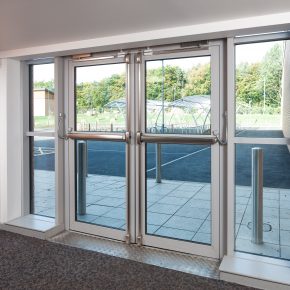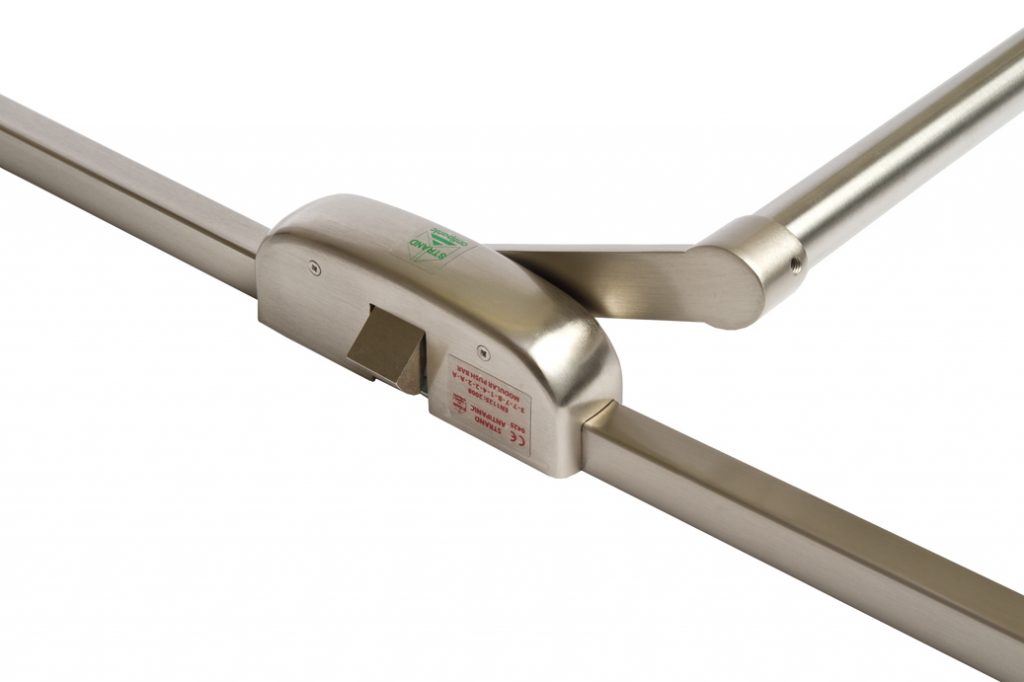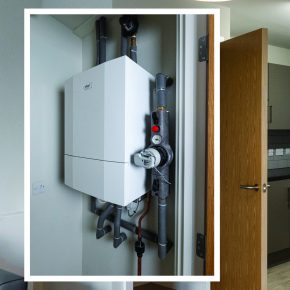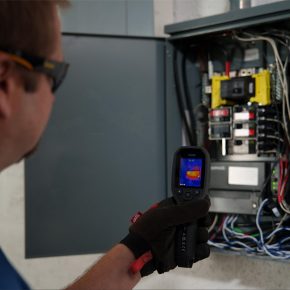
Strand Hardware: Barring All Eventualities
 When it comes to specifying hardware for emergency exit and panic doors, it’s important to consider where it is to be placed, who is likely to use it and in what circumstances. Strand Hardware’s Sales Director Craig Fox looks at considerations to hone down your choice…
When it comes to specifying hardware for emergency exit and panic doors, it’s important to consider where it is to be placed, who is likely to use it and in what circumstances. Strand Hardware’s Sales Director Craig Fox looks at considerations to hone down your choice…
“There are a variety of manual and electrical options available for escape door hardware but as with all products, its essential to consider the end user and the environment in which devices are to be placed. The primary purpose of any door on an escape route is for it be readily openable, and the type of premises and its level of occupancy will define whether what type of panic or emergency exit hardware to use.
The Code of Practice: Hardware for Fire and Escape Doors, published by the Door Hardware Federation (DHF) and the Guild of Architectural Ironmongery (GAI) defines the two:
– Panic exit devices to BS EN 1125: These devices are intended primarily for buildings where the public is likely to be present and a panic situation could arise if the building must be evacuated quickly. For this reason, the devices are designed to operate by body pressure alone and require no knowledge of their operation to enable safe and effective evacuation of a building.
– Emergency exit devices to BS EN 179: These devices are intended for escape from buildings where the public is unlikely to be present, and where the staff have been trained in emergency procedures and in the use of the specific emergency exit devices fitted. For this reason, panic situations are considered unlikely, and these devices are therefore permitted to have higher operating forces and do not need to release by body pressure alone.
In most cases a mechanical panic device will be the first choice. However, it’s worth considering if the door is to be used for other access requirements and whether users might have accessibility issues. For example, in a hospital or care home, motorised touch bars could provide additional functionality and ease-of-use.
Safety and security
Safety and security will also be a factor. All panic and emergency exit devices provide a level of security against intrusion, but where there is a need for increased security, additional measures can be taken to enhance it without compromising the ability of people to escape during an emergency.

It is essential to liaise with local building and fire authorities to determine building occupancy and undertake risk assessment if such measures are deemed necessary. These can include audible alarms, door monitoring devices and CCTV.
Motorised devices are often used on escape doors which require external access control to restrict who enters a building such as an entrance to a school or college. They are also suitable for use on automatic doors.

Motorised touch bars also provide convenience and enable efficient building management. They can be linked to a variety of access control systems which use swipe card, digital keypad or proximity reader to allow controlled access from outside. They are ideal for large commercial or public buildings and with the addition of a microswitch they can be linked into an estate management off-site control to provide door monitoring.”
Visit Supplier's page
Latest news

28th April 2025
Renderplas: Builders avoid costly remedial work with PVCu render beads
A pioneer of PVCu render beads, Renderplas is helping the construction industry avoid the costly remedial work associated with rusting steel designs…
Posted in Articles, Building Industry News, Building Products & Structures, Building Services, Building Systems, Facades, Posts, Render, Restoration & Refurbishment, Retrofit & Renovation, Sustainability & Energy Efficiency, Walls
28th April 2025
How Celotex’s Technical Team adds value through expert insulation support
From U-value calculations to real-world installation support, Celotex’s technical team helps construction professionals specify and install insulation with confidence…
Posted in Articles, Building Industry News, Building Products & Structures, Building Services, Insulation, Research & Materials Testing, Restoration & Refurbishment, Retrofit & Renovation, Sustainability & Energy Efficiency, Walls
28th April 2025
Ideal Heating Commercial takes extra care with the heat network at Huddersfield specialist housing development
Ideal Heating Commercial POD Heat Interface Units (HIUs) and Evomax 2 condensing boilers have been installed into Ash View Extra Care in Huddersfield.
Posted in Articles, Building Industry News, Building Products & Structures, Building Services, Case Studies, Facility Management & Building Services, Heating Systems, Controls and Management, Heating, Ventilation and Air Conditioning - HVAC, Pipes & Fittings, Plumbing, Restoration & Refurbishment, Retrofit & Renovation
25th April 2025
Quicker and Easier Inspections with High Performance FLIR Testing Solutions
FLIR, a Teledyne Technologies company, introduces its PV range of inspection solutions to expedite panel installation and maintenance at solar farms, commercial buildings, and residential buildings.
Posted in Articles, Building Industry News, Building Products & Structures, Building Services, Facility Management & Building Services, Information Technology, Innovations & New Products, Research & Materials Testing, Restoration & Refurbishment, Retrofit & Renovation, Sustainability & Energy Efficiency, Thermal Imaging and Monitors
 Sign up:
Sign up: